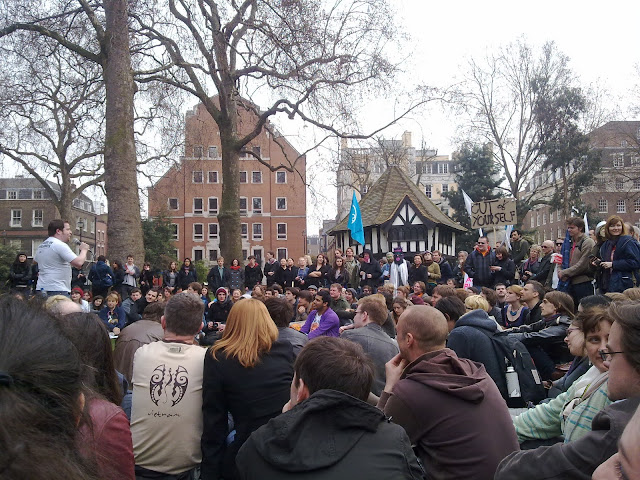Sorry it's been a while since my last article and I feel it's time for a poem. I wrote this one a little while ago, as I was mulling over the detritus of the recent global financial crisis and also wondering how it related to the other events of the past decade. I tried to write something which succinctly illustrated how the threads of various themes have intertwined to create a coherent tapestry of the years from 2001 to the present day. I think I almost succeeded! This is about as close as I ever get to writing free verse, by the way:
Postcard from Nassau
Here am I
hanging dollar bills out
in the sun to dry.
George and Tony send their love.
George says “Stop! It’s hammock time.”
“That guy kills me”, says Osama,
laughing like an AK47.
He’s playing Risk with Tony, who just smiles:
“How many virgins do you get in heaven?”
We all love Osama –
more than virgins, more than beer,
more than liberals love Barack Obama.
If there’s a bond more powerful than love,
it’s fear.
Give my love to Lehman Brothers,
AIG and Goldman Sachs.
Praise be to Dick, and Paul - and Dick.
God bless Rupert and his hacks.
My golden parachute opened like an orchid,
petals stitched by tiny hands
chained in darkness in Shenzhen.
I can even hear the silkworms singing
“Here we go round the mulberry tree”,
in happy voices, thinking they are free.
They all love Osama –
more than virgins, more than beer,
more than buddhists love the Dalai Lama.
If there’s a bond more powerful than love,
it’s fear.
***
Notes: Nassau is the capital of the Bahamas, which is a tax haven, as well as being a tropical holiday isle. It also used to be a major centre for money laundering, drug running, gun running and tax evasion, until the Cayman Islands overtook it in the more dubious respects. Shenzhen is a free economic zone in Southern China, famous for its sweatshops, corruption and lack of workers' rights. I doubt silkworms stop to think much on the nature of freedom and their relationship to it, but I hope that the rest of us do. Dick and Paul and Dick are Cheney, Wolfowitz and Perle. Oh, and Tony Blair is mainly famous for smiling ... and starting wars ... never play Risk with Tony.













